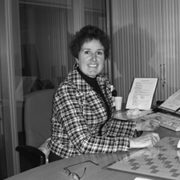Why the chronic shortage of anesthesiologists?
We are all aware that there is a dearth of physicians both in primary healthcare and several hospital specialities in the West, an escalating problem that is particularly acute in the case of anesthesiologists. In some European countries this situation is at least partially the result of poor planning and under-investment in medical education, coupled with aggressive attempts to recruit medical professionals overseas, but there are other factors involved that must be addressed before we can hope to consider approaches that could alleviate the problem.
A major contributing factor is that today’s anesthesiologists are not only active in the operating theatre: their expertise is required during patient evaluation prior to surgery, and in critical care and pain management post-surgery. And not only has medical research augmented the number of surgical procedures that are now possible, but Europe’s increasing numbers of senior citizens, who are the most likely to suffer from non-communicable and chronic diseases, are the main beneficiaries of these innovative approaches. Inevitably this results in the demand for anesthesiologists exceeding the supply.
Another factor is that the generation of predominantly male anesthesiologists who focussed on their careers and were prepared to work in the evenings, at night and during weekends and holidays, severely limiting the time they could spend with their families, are retiring and being replaced by younger specialists who are legally entitled to work fewer hours per week and are also aware that social changes in recent decades, allowing both genders to enjoy satisfactory careers, require them to contribute practically (as well as financially) at home.
There is also a shortage of surgeons in Europe but this problem is not so acute as with anesthesiologists. Sadly this may well be because of the greater prestige enjoyed by practitioners of the former specialization, a situation which should surely be an anachronism. It is to be hoped that the primary goal of all medical professionals is to help their patients but until all specialisms are equally valued and respected for their essential contribution to patient care, some will continue to attract fewer recruits than others. There could even be a long-term solution to the problem if physicians themselves, including anesthesiologists, would value and respect non-medical healthcare professionals as they deserve. Surely the ever evolving technologies available in critical care settings and the relevant training offered could allow specialized anesthesia nurses to be trusted to administer anesthesia for certain procedures and patients, as well as sedation and pain relief, without requiring direct supervision from on high?


